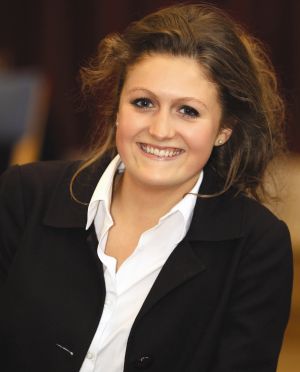A Sixth form pupil at Rydal Penrhos School has had an article published in a leading industry magazine.

Annabel Large, 17, from Gwespyr has been researching manuka honey and its use in modern medicine as part of her Extended Essay to complete her International Baccalaureate Diploma.
The Extended Essay can be on a topic of the pupils’ choosing, but will relate to one of the six subjects being studied as part of the Diploma. Annabel chose the research project of “Do the antimicrobial properties of regional honey differ to manuka honey and how could these unique antimicrobial properties be incorporated in modern medicine in the fight against strains of bacteria?” after she read an article a BBC news article discussing the medical use of honey.
In order to research her essay, Annabel contacted the Society of General Microbiology who put her in touch with various University lecturers who aided her research and offered advice regarding experiments Annabel could carry out as part of her project.
The success that Annabel has achieved in establishing contacts through the Society, has led to the Society’s magazine, Microbiology Today, which is a valuable resource for anyone wishing to know more about current issues and research in microbiology, publishing an article co-written by Annabel and Biology teacher, Mr Ian Richardson about the experience.
The article can be found in the November 2012 issue of Microbiology Today and is a great achievement for a 17-year-old student.
Annabel, who is Head Girl at Rydal Penrhos, hopes to pursue a career in medicine, and has applied to Cambridge, Cardiff, Newcastle and Bristol universities to study medicine.
The IB is a two-year course which requires pupils to take six subjects: their first language, Mathematics, a second language, a science, humanity and an option such as an arts subject or a second science. Three of the subjects must be taken at ‘Standard Level’ and three are taken at ‘Higher Level’ (each awarded a maximum of 7 points).
Pupils must also complete three further components; Theory of Knowledge, Creativity, Action and Service along with the Extended Essay, which can add up to 3 bonus points.
The minimum score pass for the Diploma is 24, and the maximum is 45. Research has shown that Diploma holders cope well with the demands of higher education, and it is held in high esteem by universities in the UK and all over the world.